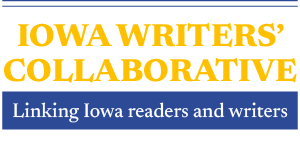 OMAHA — Life at its best, the growth of family, development of friendships and pursuit of professional passions, is about addition, not subtraction.
OMAHA — Life at its best, the growth of family, development of friendships and pursuit of professional passions, is about addition, not subtraction.
That’s the mindset I walked away with after a DEI (Diversity, Equity and Inclusion) event at the Omaha Chamber of Commerce, a learning experience led by Des Moines-based Claudia Schabel, president and CEO of Schabel Solutions Inc.
DEI.
The acronym is so politicized now — and misunderstood — that some of the population often feel like DEI training is a sort of loathsome community service, seminars or exchanges seeded with cancellation mines, programs at which to sit still, say little, and escape. They are more to be endured than absorbed, goes the thinking in certain circles.
But that’s not what I encountered at Schabel’s engaging discussion, which kicked off the Greater Omaha Chamber’s “I AM” series earlier this month.
Allyship is not an identity. Some of us might say, ‘I’m an ally.’ Well, only the direct beneficiaries of our practice of allyship can say that about us, right? They decide if we’ve done it or not.
– Claudia Schabel, Schabel Solutions Inc.
The session led by Schabel, who has a growing national reputation, is essential in modern America. It’s not an airing of grievances, but rather an opportunity for self-reflection, safe sharing and growth – and an expansion of networks. In her view, diversity isn’t restricted to the most commonly discussed dimensions of race/ethnicity, gender, gender identity, age, disability, sexual orientation and veteran status. It includes rural/urban, thinking style and family-structure differences and beyond. In short, she’s focused on the broad, rich and ever-evolving tapestry of American life.
“There are still many people lacking awareness about the importance of our many layers as individuals,” Schabel told us on this August afternoon in a chamber building in Omaha’s Old Market, overlooking a tranquil reach of the Missouri River. “Each of us is unique and should be understood and treated accordingly. This isn’t easy to do.”
When we are competing in a global economy, a race with China for economic leverage and leadership, we need everyone, all of our human capital, working to succeed. To do so effectively, we have to see our world as it is, and that means seeing people as multi-dimensional, not pigeonholing them by their gender or race/ethnicity, for example. And, you should not seek refuge in the contrived safe harbor of color-blindness, Schabel says.
“When you say you are not seeing color, you are not seeing all of me,” said Schabel, a multi-racial Latina with roots in Brazil who lived for a time in Japan before graduating from Drake University and building a career in Iowa. “Like everyone, I am a complex mix of many different dimensions of diversity.”
Born in Cedar Rapids, I was adopted as a baby. So was my sister Jane (Burns) Nguyen, a Vietnam War orphan who was evacuated from Saigon in April of 1975. (Jane is the author of “The Asian Iowan” column in the Iowa Writers’ Collaborative.) My animated and witty sister brought so much joy to our home, and for me, the presence of a little sister who does not look like me, shaped an approach to life in which I did not have to act or adjust to people of different backgrounds — one of the reasons, I’m sure, for the diversity of friends and colleagues in my life.
But my journey is not that of my sister. And as well as I may think I am doing playing a role in fostering more inclusive and welcoming environments, I’m likely lacking. Actually, the data shows people like me are falling short.
Sixty-three percent of white employees in our nation see themselves as “allies” to women of color in the workplace. But only 16% of Latinas and 11% of Black women think employees of their race and gender have allies at work, according to Schabel Solutions.
“Allyship is not an identity. Some of us might say, ‘I’m an ally,’” Schabel said. “Well, only the direct beneficiaries of our practice of allyship can say that about us, right? They decide if we’ve done it or not.”
Schabel, named the 2023 Iowa State University Ivy College of Business Woman Business Owner of the Year, says allyship can take many forms. It thrives in organizations that foster psychologically safe workplaces.
“When you have psychological safety, you have a key driver of inclusivity and employee engagement,” Schabel said. “Unfortunately, many of us are living different versions of ourselves at work and at home.”
We heard the experiences of people from a range of backgrounds, lived experiences, that afternoon in Omaha. That, in and of itself, is valuable. I was moved to hear a Black woman talk about how she changes her voice in business settings, lowers a naturally strong, projecting speaking style (a gift, really) into a more mellowed, slow-paced and, in what she thinks appeals to the broader audience, a less-threatening voice. I don’t have to think about things like this for my own interactions (my privilege) — but, now, I am better prepared to make an assist in a business or political meeting where I see a woman of color making unnecessary concessions — which diminish the full conversation.
There are many ways to practice allyship for those who are not like us. That can involve a decision to use your pronouns on emails and in other communications to show support for people who are non-binary.
It’s deeper than that, though.
When you are in a position of influence, higher in the hierarchy, one of the more effective allyship practices is mentoring, getting involved in the career advancements of others who have historically had to overcome barriers that I have not faced (my privilege – or unearned advantage). That has staying power and involves real work with real rewards.
“To practice allyship effectively, you have to have consistent courage and commitment,” Schabel said. “You can’t just do it once and call it done.”
Editor’s note: Please consider subscribing to the Iowa Writers’ Collaborative and member authors’ blogs to support their work.



